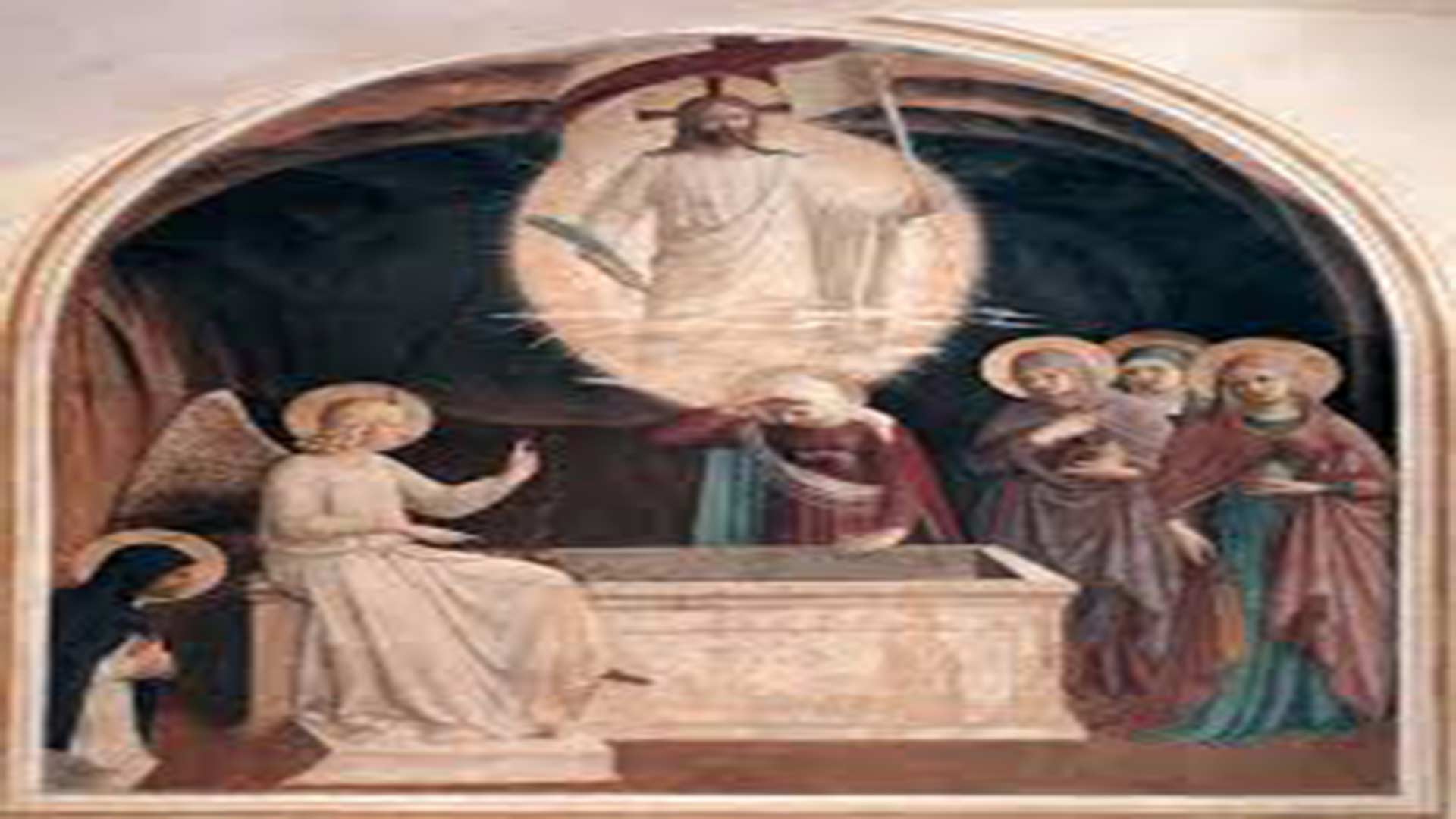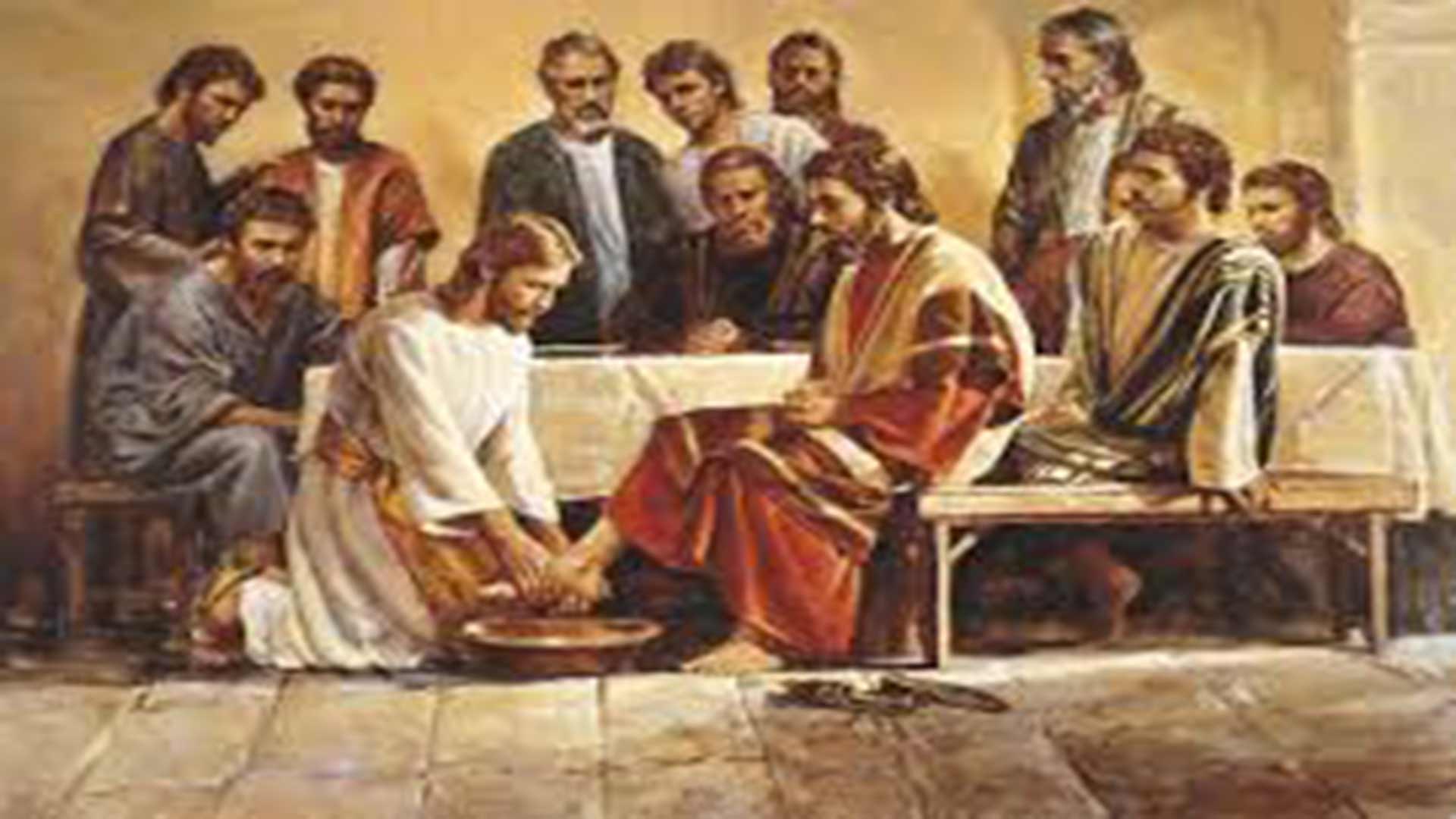He has risen, Alleluia!
EASTER SUNDAY 2020
Readings: Acts 10: 34a, 37-43; Ps 117: 1-2, 16-17, 22-23; Col 3: 1-4; Jn 20: 1-9
After a quarantine marked by a grim Liturgy of the Word followed up by a Triduum of hope, the day has finally come when our Light, Life and Hope has broken all barriers and made Himself manifest. What joy for those who observed the Lenten period in prayer, fasting and almsgiving!
Nine readings are prescribed for the Easter Sunday Vigil Mass, seven from the Old Testament and two from the New Testament. But let’s restrict ourselves to the three readings prescribed for the Easter Sunday morning Mass.
Today begins a new cycle of readings, all of them from the New Testament writers. Particularly the first reading – from the Acts of the Apostles – will go on uninterruptedly up to Pentecost Sunday (with the exception of the Vigil Mass). This fifth book of the New Testament, written in all probability by the Evangelist Luke, provides a valuable history of the early Christian church.
Today, we see Peter joyfully announcing that Christ has risen. A man who lived with Jesus vouches that He is not just a man: anointed by God’s Spirit, He has the fullness of God in Him. He is undoubtedly the Messiah, who showed His true nature by way of miracles, of which the Resurrection is the most definitive. He is the Life who has conquered death. He has commanded Peter and the other apostles “to testify that He is the one ordained by God to be the judge of the living and the dead.” He is the Saviour whom all of humankind is invited to follow and accept, and “everyone who believes in Him receives forgiveness of sins through His name.”
Peter, who had once lost it and denied his Master, now speaks with the courage of his convictions. He is already showing up as the leader of the nascent Apostolic College. And so was it with Paul. He had persecuted Christ but now, filled with the Holy Spirit, he urges others to follow Christ. Pointing at the One “who is seated at the right hand of God”, he vouches that “when Christ who is our life appears, then you also will appear with him in glory.” We too, by our baptism, have died to sin and risen with Christ to a new life. Hence, in the world in which we live, whatever our station in life, we are duty-bound to work towards our collective happiness on earth but never forgetting that Heaven is our final destination.
Indeed Christ’s Resurrection is His glory. What a slap it was to those who didn’t believe and put to Him to death. Against facts there are no arguments! At first, only a few remembered Him, had faith and persevered. One of them was Mary Magdalene. She came to the tomb and, wonder of wonders, the stone had been rolled away! Did she understand what had happened? Was she scared? She suspected sabotage, as we can conclude from what she told Simon Peter and John. When these two reached the tomb, they saw and believed. Mind you, till that moment “they did not know the scripture”, that is to say, they’d never understood what Jesus had told them in his three-year ministry. Only just now it dawned on them that He had really risen from the dead!
Don’t we too go through many Lents and Easters of our life as though they are mere rituals? Let’s hope that our faith has progressed such that this year it has dawned on us that Christ really rose two thousand years ago after an excruciating Passion and Death. Let’s believe and testify that He does so every day at the Holy Sacrifice of the Mass. This is what is meant by the "Real Presence" of Christ in the Eucharist. The Risen Christ is present to his Church in many ways but most especially sacramentally, through His Body and Blood.
The Lord calls us to love one another
LENT 2020 – Day 44
Readings: Ex 12: 1-8, 11-14; Ps 115: 12-13, 15-16, 17-18; Cor 11: 23-26; Jn 13: 1-15
Maundy Thursday is the first day of the Easter Triduum. The readings of the Mass of the Lord’s Supper form a bridge between the historic liberation of the Israelites from slavery in Egypt and the final liberation of the world from the bondage of sin.
The reading from the Book of Exodus points to the origin of Israel as God’s Chosen People. The Lord commands that this month be the first of the year, in commemoration of the beginning of their liberation. He ordains on how to observe the Paschal rituals. These foster a feeling of religious community through the sharing of the paschal lamb. The staining of doorposts with blood of the expiatory lamb is the stamp of the divine that wards off all evil. Unleavened bread eaten in haste accompanied by bitter herbs is a symbol of the suffering from which the Israelites had fled.
When the twelve Apostles celebrated the Passover with their Master, they followed the traditional rite evoking the old covenants. It was also a thanksgiving for God’s many interventions to rescue the Israelites. What the Apostles did not realize, however, was that the Last Supper marked a new beginning. Jesus had anticipated Calvary where He would be presenting Himself as the paschal lamb, the Lamb of God. He did so mysteriously, by converting bread and wine into His Body and Blood. The Son of God made this supreme act of love so as to redeem the sins of humankind. The Holy Mass thus established became the bloodless Sacrifice of the New Covenant.
The Eucharist is a masterpiece of Jesus’ love, the best proof of His love for humankind. He made the Apostles participants in His Priesthood and ordained them to carry out that mystery. He gave them responsibilities and authority: to bind and loose in His name, to forgive sins, to transform the bread and wine into His Body and Blood. This the ordained priesthood would do infinite times, until the Lord’s return to the world. Their role is vital in helping the faithful to carry out their baptismal priesthood.
There was no better occasion than the Last Supper for the Lord to command His followers to love one another. He said, “A new commandment I give unto you, that ye love one another; as I have loved you, that ye also love one another. By this shall all men know that ye are my disciples, if ye have love one to another.” (Jn 13: 34-35) This new commandment is a summary of all of God's law and brings about the definitive liberation.
Speaking to the first Christians, St Paul reiterated that this liberation emerged when the Paschal Lamb, who is the Christ, was sacrificed. Given that we Christians aren’t always united in love, we must take seriously the reminder from the Apostle of the Gentiles: that the Eucharist and the Church – the Sacramental Body and the Mystical Body – are intimately connected. We should place ourselves at the service of our brethren, in humility and love, of which the washing of the Apostles’ feet by our Lord is emblematic. A Eucharist celebrated amidst division cannot be a sign that we are followers of Christ.

